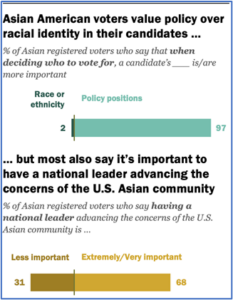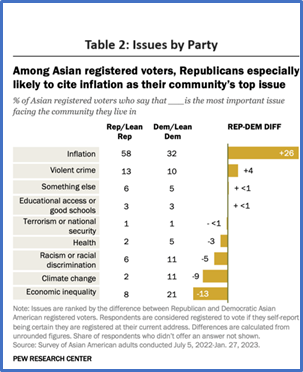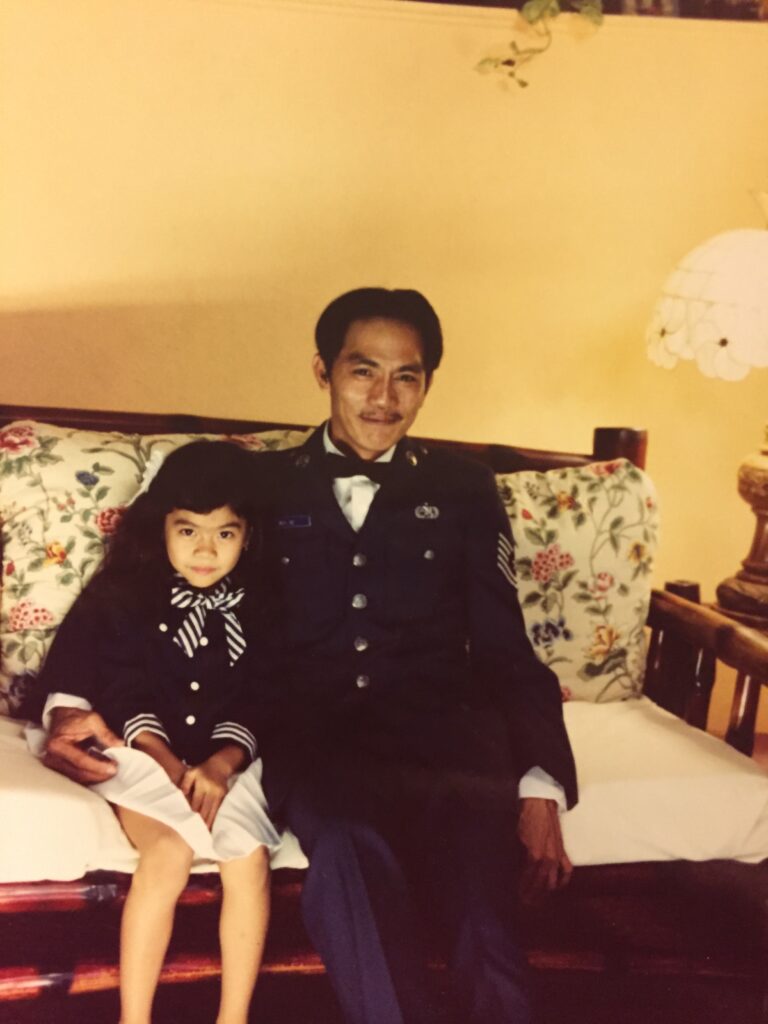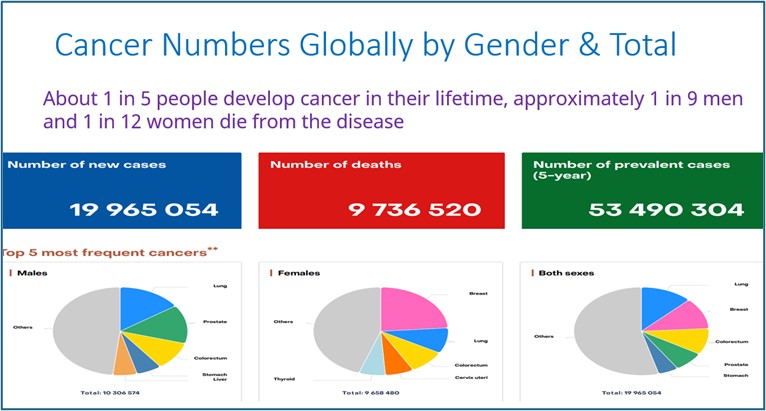As discussed in our session one, Asian American is the fastest growing population that has increased by 15 times between 1870 to 1960 and has increased 11 times from 1960 to 2000. They doubled from 2000 to 2020 and will further double by 2060, thus increasing 46-fold between 1960 and 2060 to reach 46 million and that will make Asian American as 10% of the total US population. Native Hawaiians and Pacific Islanders were the third-fastest growing group, growing by 30% from 2010 to 2020. Their population is projected to pass 2 million by 2030.
Background: In a country where the past two elections were decided by fewer than 100,000 votes, the estimated 24 million Asian Americans could be a force for years to come — whether it’s in states like Nevada, where Democrats are losing less-educated white voters, or in red-to-purple trending states like Georgia and Arizona, where Republicans are losing the suburbs.
In 2020, Native Hawaiians and Pacific Islanders saw the highest increase in presidential turnout among any racial group (15-point increase, followed by 11 points for Asian Americans), and Asian Americans had the highest midterm turnout gain in 2018, a 14-point increase. In 2020, almost 60% (7.6 million) of the Asian American citizen age voting population turned out. In battleground states such as Arizona, Georgia, Nevada, North Carolina and Pennsylvania, the number of Asian Americans who cast their ballot in 2020 exceeded the presidential margin of victory.
Pew Research Center conducted a nationally representative survey of 7,006 Asian adults. The survey sampled U.S. adults who self-identify as Asian, either alone or in combination with other races or Hispanic ethnicity. It was offered in six languages: Chinese (Simplified and Traditional), English, Hindi, Korean, Tagalog and Vietnamese. All responses were collected from July 5, 2022, to Jan. 27, 2023. All findings – including for the most important issue facing the communities’ Asian adults live in – were captured during this long field period. This paper highlights the findings.
What is important for Asian American and Pacific Islander while deciding to vote?

More of AAPI voters are focused on the issues and policy rather than state or ethnicity of the candidates.
Nearly all Asian American registered voters (97%) say a candidate’s policy positions are more important than their race or ethnicity when deciding whom to vote for. This sentiment is widespread among all major demographic subgroups of Asian registered voters.
At the same time, a 68% majority of Asian registered voters say it’s very important to have a national leader who can advance the concerns of the U.S. Asian community, according to a nationally representative Pew Research Center survey conducted from July 2022 to January 2023.
These findings are especially relevant as the 2024 U.S. presidential election approaches. Two candidates of South Asian ancestry, Nikki Haley and Vivek Ramaswamy, are running for the Republican nomination.
AAPI in the house and the senate: a gross under-representation
Asian Americans continue to be underrepresented among elected officials in the United States compared with their share of the country’s population.
As of February 2021, there are 15 representatives (out of total 435) and 2 senators (out of total 100) of Asian-American descent who are currently serving in Congress. This is grossly under representation compared to 10% of voters in this group.
What is the party preference of Asian Americans?
Asian registered voters tend to prefer the Democratic Party: 62% are Democrats or lean Democratic, while 34% are Republicans or lean towards Republicans. Most Asian origin groups are majority Democratic. However, more Vietnamese registered voters identify as Republican than Democratic (51% vs. 42%).
What issues do Asian American voters care about the most?
About four-in-ten Asian American registered voters (41%) say inflation is the most important issue facing their local community – See table 1.
Economic inequality (16%) is the second-most mentioned issue, followed by violent crime (11%) and racism (9%). These concerns follow reports of violence against Asian Americans during the COVID-19 pandemic.
Among the six largest Asian origin groups, inflation is consistently cited as the biggest issue facing Asian American voters’ communities. In addition, the ranking of issues is largely similar across origin groups, though some minor differences emerge:
Japanese registered voters (28%) are more likely than Chinese (15%), Filipino (15%), Indian (13%) and Vietnamese (9%) voters to view economic inequality as the biggest issue facing their community.
15% of Indian registered voters say climate change is the most important issue facing their community. This is higher than the share saying the same among Filipino (7%), Chinese (6%), Japanese (6%) and Vietnamese (5%) voters.
How do Asian American voters’ views differ by political party?

Views of top issues diverge sharply by party among Asian American registered voters:
Asian Republican voters are more likely than their Democratic counterparts to view inflation as the most important issue facing the community they live in. Even so, it is the most cited top issue for both groups (See table 2)
Asian Democratic voters are more than twice as likely as Republicans to say economic inequality is the biggest issue facing their community.
Economic inequality is the second-most cited issue among Asian Democratic voters. Among Asian Republican voters, violent crime is the second-most cited issue.
These sharp differences can be explained by party thinking but can also be different since we are looking at Asian and Pacific Islander as a single group. While the socio-economic, education and cultural patterns of the population of these Asian groups differ substantially and grouping them in a single category is going to hide their wide differences.
How do Asian American voters’ views differ by nativity?
Views of top issues also vary somewhat by nativity among Asian American registered voters – that is, based on whether they were born in the U.S. or abroad.
Asian registered voters born in the U.S. are slightly more likely than immigrants to view economic inequality as the most important issue facing their community. However, the importance of issues varies less by nativity than by party among Asian Americans.
To Summarize, Asian and Pacific Islander Americans are an important and decisive group that will influence the results of the coming election. However, the parties have not fully realized their importance is evident from the fact that although more than half of registered Asian Americans surveyed say they plan to vote, but less than half have been contacted by either of the major parties. 52% of Asian Americans said they had not been contacted at all by the Democratic Party in the past year, and 60% of Asian Americans said they had not been contacted at all by the Republican Party in the past year. Both the parties need to acknowledge the crucial role that AAPI communities are going to hold a very important share of the votes to decide who comes to power. To strengthen AAPI further at the policy level and programmatically, we in collaboration with NYU Center for the Study of Asian American Health, carry out a study called Community Health Resources and Need Assessment (CHRNA) and you all can participate in this study by clicking this link https://www.apcaaz.org/beewell and complete the study. That way we can contribute to our community’s future planning. The study is a detailed one and you will need approximately 30 minutes to complete the study and submit your contribution, that will be a big step forward to help our community for the future.







